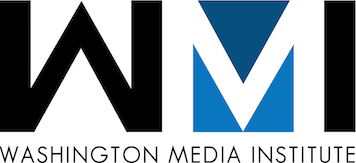By Director Amos Gelb
It’s March in Washington and we are well into summer internship placement season: our annual rite of matching up students with perfect internships in the internship capital of the world.
Here at WMI we focus exclusively on the media so, as you would expect, we deal with an ever-changing professional landscape. Traditional newspaper opportunities diminishing, podcasting growing, paid vs unpaid internships.
But this season there is something new. Something I had not expected. And something that is going to change the way soon-to-be-former students get their careers started.
It is in the area of video production. DC had earned the name Docu-wood for the concentration of production houses here that serve National Geographic and Discovery.
I worked in and with that industry for years and knew most of the production houses.
So when a student popped up who wanted to work in production and had a particular focus, I reached for the virtual rolodex and started calling several places that would be the right fit.
And this is where it was something new.
Most of the largest production houses I worked with have either consolidated, downsized or are simply gone.
There is still plenty of production happening in DC, but as cable has slid into decline, the tide on the business model that had supported all the production houses has gone out. Talking to old colleagues revealed that the bulk of the work is freelance and there are fewer and fewer staff positions. It is the gig-economy production style.
There is still plenty of production and smaller production shops have spring up. We took the opportunity to review our rolodex and the intern was placed well.
But here is why this is relevant to soon-to-be-former students. If you want to get into production, the old route, getting your foot in the door at a production house and working your way up, is gone.
The challenge will be how do you get known when you have no track record? How do you build the network to get that call when needed?
And so WMI has added a new component. How to find the entrance.
The Washington Media Institute helps students build the professional resume they need to get the job after graduation. Our program complements what students are learning at their universities through project-based courses, full-time internships, and networking site visits. Click here to learn more about our program.
